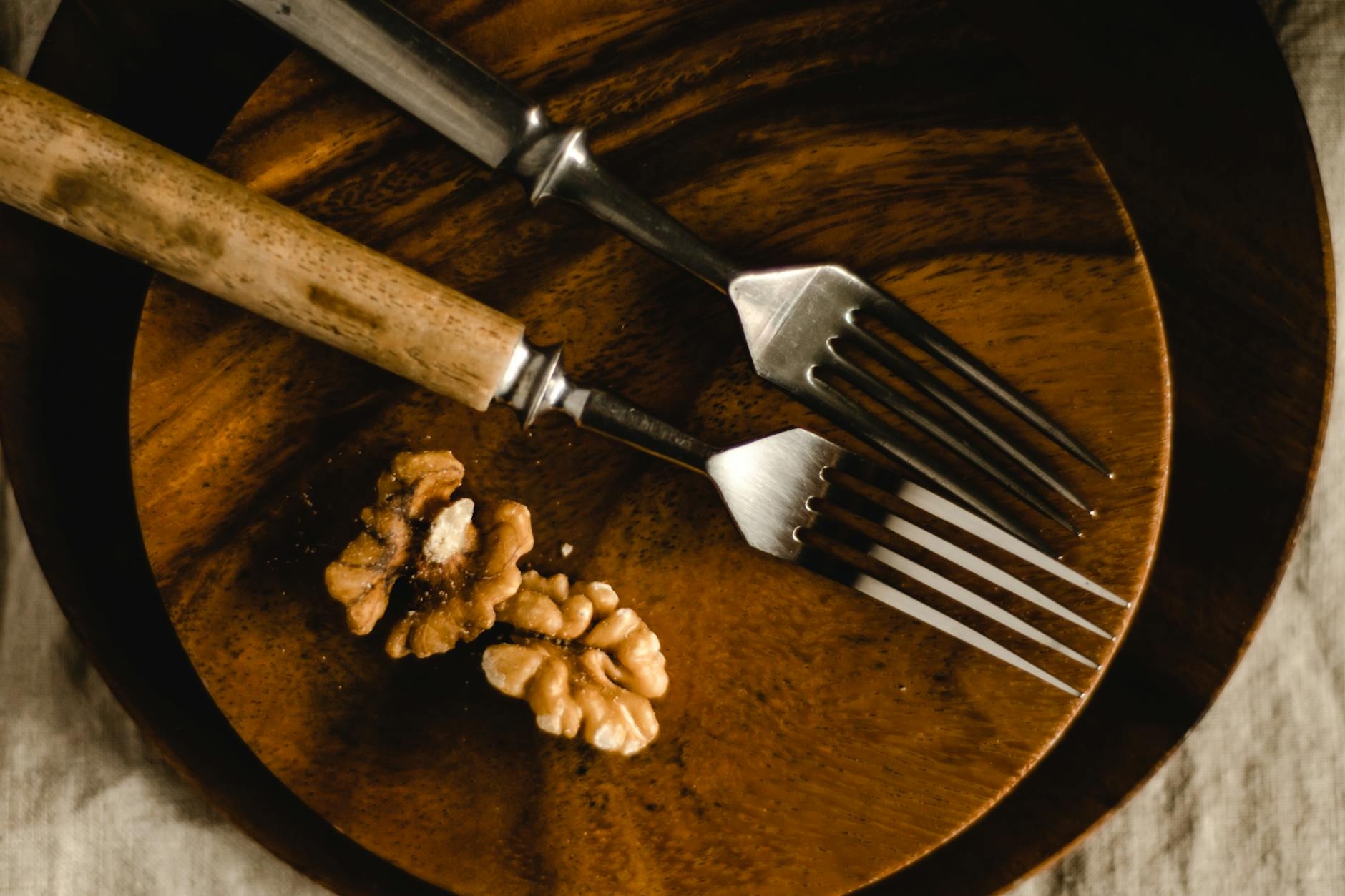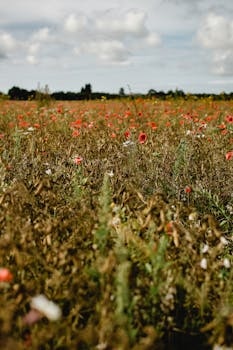Estonia Food Guide
Content Information
Recently updatedFood Safety Tips
Essential food safety information to help you enjoy Estonia's cuisine safely and confidently.
Check for ticks after spending time in forests or grassy areas.
Tick-borne encephalitis is a concern in Estonia. Use insect repellent and check yourself thoroughly after being outdoors. Consult a doctor if you experience symptoms after a tick bite.
Be cautious with wild mushrooms.
Only consume wild mushrooms if you are an expert at identifying edible species. Many poisonous mushrooms resemble edible ones. If unsure, avoid wild mushrooms altogether.
Drink bottled or boiled water.
Tap water is generally safe to drink in cities, but it's advisable to stick to bottled or boiled water, especially in rural areas, to avoid any potential stomach upset.
Dietary Options
vegetarian
MEDIUM AVAILABILITYVegetarian options are becoming increasingly available in larger cities and tourist areas. Traditional Estonian cuisine is heavily meat-based, but restaurants are adapting to offer more plant-based choices. Salads, vegetable soups, and potato-based dishes are common vegetarian options.
vegan
LOW AVAILABILITYVegan options are less common than vegetarian ones. However, veganism is gaining popularity, and some restaurants in major cities offer vegan dishes or can adapt existing menu items. Be sure to inquire about ingredients and preparation methods.
gluten-free
MEDIUM AVAILABILITYGluten-free options are available, particularly in larger cities. Many restaurants are aware of gluten intolerance and offer gluten-free bread, pasta, and other alternatives. Be sure to inform your server about your dietary needs.
Common Allergens
Dairy
MEDIUM PREVALENCEDairy products like milk, cheese, and butter are common ingredients in Estonian cuisine. Be sure to check labels and inform restaurant staff about any dairy allergies.
COMMONLY FOUND IN:
Gluten
MEDIUM PREVALENCEGluten is found in many traditional Estonian breads and pastries. Rye bread (rukkileib) is a staple, but gluten-free alternatives are becoming more readily available.
COMMONLY FOUND IN:
Nuts
LOW PREVALENCENuts are not as prevalent in traditional Estonian cuisine as in some other cuisines, but they can be found in desserts and some main courses. Always check ingredients lists if you have a nut allergy.
COMMONLY FOUND IN:
Essential Food Experiences
These iconic dishes represent the must-have culinary experiences that define Estonia's food culture for travelers.

Verivorst (Blood Sausage)
A traditional Estonian Christmas food made with pig's blood, barley, pork, and spices. Typically oven-baked or pan-fried, it's served alongside sour cabbage, marinated pumpkin, sour cream, and cranberry jam. During the holiday season, the scent of roasting verivorst fills Tallinn's Christmas Market, where it's served fresh on cold winter nights.

Mulgipuder (Potato and Barley Porridge)
One of Estonia's most traditional dishes, a hearty potato and barley mash. Locals proudly claim it as a 100% Estonian dish, free from foreign influence. Added to the UNESCO List of Intangible Cultural Heritage in 2024, this porridge is typically served with bacon and sour cream. Your best chance of finding authentic Mulgipuder in Tallinn is at the Estonian Open Air Museum tavern or Kolu Tavern.

Kiluvõileib (Sprat Sandwich)
Traditionally made with Estonian black rye bread coated with butter or munavõi (egg butter) and topped with slices of hard-boiled egg, onions, fresh greens, and a sprat fillet fished from the Baltic Sea. Estonians take their sprat sandwiches seriously, serving them on all special occasions from weddings and funerals to birthdays and New Year's Eve.

Kohuke (Chocolate-Covered Curd Snack)
A beloved Estonian treat made from freshly pressed sweet curd coated in chocolate. While the classic version sticks to simple curd and chocolate, you'll find variations including strawberry, caramel, coconut, and lemon. Popular across the Baltic region, its history dates back about 70 years and it became a cult favorite during the Soviet era. Available in any supermarket, grocery store, or cafe.

Mulgikapsad (Stewed Sauerkraut with Pork)
A classic Estonian dish of stewed sauerkraut with pork, barley, and potatoes. This comforting and flavorful meal is especially popular during the colder months and represents traditional Mulgi cuisine from Southern Estonia.

Silgusoust (Baltic Sprat Paste)
A creamy sprat paste typically spread on rye bread, showcasing the importance of Baltic herring in Estonian cuisine. This simple yet delicious dish is a staple at Estonian breakfast tables.

Kama (Toasted Grain Mixture)
A traditional Estonian superfood made from a mixture of roasted barley, rye, oat, and pea flour. Mixed with buttermilk or kefir, it creates a nutritious breakfast or snack. Kama has been part of Estonian cuisine for centuries and is experiencing a revival as a health food.

Sült (Jellied Meat)
A traditional Estonian cold dish made from pork meat set in aspic jelly, typically served during Christmas and other celebrations. This dish represents old Estonian food preservation techniques.

Smoked Fish
Particularly popular on Saaremaa island, smoked fish including herring, eel, and salmon are prepared using traditional smoking methods. The island location provides access to fresh Baltic Sea fish, which is then smoked to perfection.

Karask (Barley Bread)
A traditional barley bread from Southern Estonia, particularly associated with Setumaa and Mulgimaa regions. This dense, nutritious bread has been baked for centuries and represents Estonian agricultural heritage.

Chanterelle Dishes
Estonian forests are rich with chanterelle mushrooms, which are featured in various dishes from creamy soups to sautéed sides. Mushroom foraging is a beloved Estonian tradition, and chanterelles are among the most prized finds.
Regional Specialties & Local Favorites
Discover the authentic regional dishes and local favorites that showcase Estonia's diverse culinary traditions.

Kartulipuder (Mashed Potatoes)
A staple side dish in Estonia, often served with meat or fish dishes. It's a simple yet comforting food enjoyed throughout the year.

Hapukapsas (Sauerkraut)
A fermented cabbage dish, often served as a side or used in stews. It's a tangy and flavorful addition to many Estonian meals.

Rukkileib (Rye Bread)
A dark, dense rye bread that is a cornerstone of Estonian cuisine. It's eaten with various toppings and accompanies many meals.
Allergens:

Pirukad (Savory Pies)
Traditional Estonian stuffed pastries filled with meat, cabbage, carrots, or rice. These handheld pies are popular as snacks or light meals.
Allergens:

Rosolje (Estonian Potato Salad)
A colorful beetroot and potato salad with herring, pickles, and a sour cream dressing. This dish is a staple at Estonian celebrations.
Allergens:

Sõir (Sour Cream)
Estonian sour cream is particularly rich and features prominently in Setu cuisine and throughout the country as an accompaniment to many dishes.
Allergens:

Tartu County Pike
Pike from Lake Võrtsjärv and Lake Peipsi has been a valued food item for centuries in Tartu County, representing the region's connection to its waterways.
Allergens:

Saaremaa Onion
A unique variety of onion grown on Saaremaa island, known for its distinct flavor and used in many local dishes.
Regional Cuisine Highlights
Explore the diverse culinary landscapes across different regions of Estonia.
Mulgimaa (Southern Estonia)
Mulgimaa, located in Southern Estonia, is known for its hearty and flavorful cuisine. Pork, sauerkraut, and potatoes are prominent ingredients in traditional Mulgi dishes. The region gained UNESCO recognition in 2024 for Mulgipuder, showcasing the importance of preserving traditional food heritage.
Cultural Significance:
Mulgimaa has a strong culinary tradition, with recipes passed down through generations. The region's cuisine reflects its agricultural heritage and the importance of preserving food for the long winters. The UNESCO recognition of Mulgipuder in 2024 highlights the global significance of this regional dish.
Signature Dishes:
- Mulgikapsad
- Mulgipuder
- Kama
- Sült
Key Ingredients:

Setumaa (Southeastern Estonia)
Setumaa, located in Southeastern Estonia, has a unique culinary heritage influenced by its proximity to Russia. Setu cuisine features hearty dishes with a focus on potatoes, mushrooms, and dairy products, particularly the renowned sõir (sour cream).
Cultural Significance:
Setu cuisine reflects the region's history and cultural traditions. Dairy products, particularly sõir, play a significant role in Setu cooking. The region maintains strong connections to its culinary past while adapting to modern influences.
Signature Dishes:
- Sõir
- Pirukad (pies)
- Kartulivorst (potato sausage)
- Karask (barley bread)
Key Ingredients:

Saaremaa (Largest Island)
Saaremaa, the largest island in Estonia, has a distinct culinary tradition influenced by its coastal location. Fish, smoked meats, and locally grown vegetables including the famous Saaremaa onion are prominent ingredients in the island's cuisine.
Cultural Significance:
Saaremaa's cuisine reflects its island location and the importance of fishing and agriculture in the region's history. The unique Saaremaa onion has become a symbol of the island's culinary identity.
Signature Dishes:
- Smoked fish
- Black bread
- Saaremaa onion dishes
- Baltic herring
Key Ingredients:

Tartu County (2025 Culinary Region)
Designated as Estonia's 2025 Culinary Region, Tartu County showcases distinctive food culture centered on products from surrounding fields, forests, and bodies of water. Its location between Lake Võrtsjärv and Lake Peipsi means fish, particularly pike, is integral to the local diet.
Cultural Significance:
As the 2025 Culinary Region, Tartu County offers food enthusiasts a wide range of activities recognizing the region's rich culinary heritage. The connection to local waterways and forests defines the region's food identity.
Signature Dishes:
- Tartu County pike
- Forest mushrooms
- Wild berries
- Lake fish dishes
Key Ingredients:

Sweet Delights & Desserts
Indulge in Estonia's traditional sweet treats and desserts.

Kohuke (Curd Snack)
A sweet curd snack coated in chocolate. It's a popular treat enjoyed by both children and adults.

Mannavaht (Semolina Pudding)
A creamy semolina pudding often served with berry sauce. It's a light and refreshing dessert.

Piparkoogid (Gingerbread Cookies)
Spiced gingerbread cookies, especially popular during the Christmas season. They are often decorated with icing and enjoyed with warm drinks.

Kringel (Braided Sweet Bread)
A traditional Estonian sweet bread twisted into a pretzel shape, often filled with cinnamon, nuts, or raisins. Popular during holidays and celebrations.

Alexander Tort (Layer Cake)
A multi-layered cake with buttercream filling, named after Russian Tsar Alexander II. This rich dessert is popular at celebrations.
Traditional Beverages
Discover Estonia's traditional drinks, from locally produced spirits to regional wines.

Vana Tallinn (Old Tallinn)
A dark, spiced rum liqueur. It's a popular Estonian alcoholic beverage often enjoyed neat or on the rocks.

Saku Õlu (Saku Beer)
A popular Estonian beer brand, offering a variety of lagers and ales. It's a refreshing beverage enjoyed throughout the year.

Kali
A traditional Estonian home-brewed beer, often made with rye and juniper berries. It has a slightly sour and smoky flavor.
Soft Beverages
Discover Estonia's traditional non-alcoholic drinks, from local teas to refreshing juices.

Kali
A non-alcoholic version of the traditional Estonian small beer, often made with rye and juniper berries. It has a slightly sour and smoky flavor.

Morss (Berry Juice)
A refreshing berry juice made from various berries like lingonberries, cranberries, or blueberries. It's a popular drink enjoyed throughout the year.

Keefir (Kefir)
A fermented milk drink similar to yogurt. It's a probiotic-rich beverage known for its health benefits.